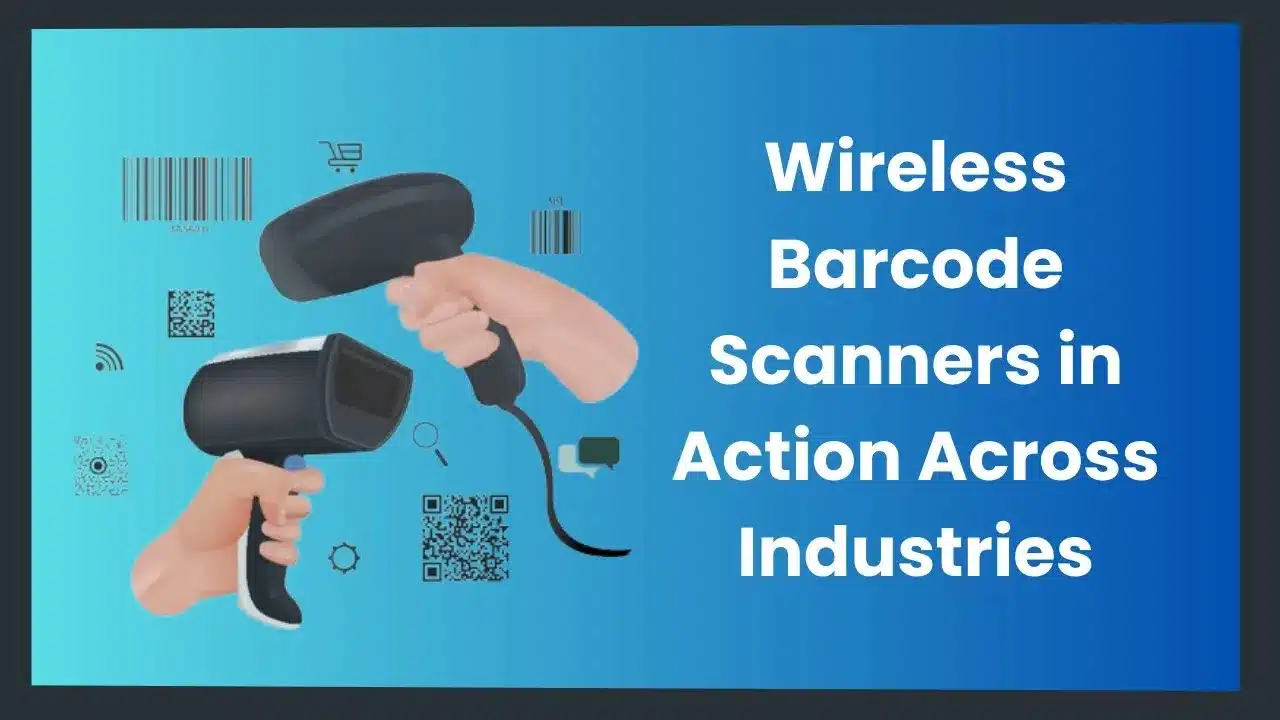Wireless scanners are no longer optional; they’re essential. Besides, these devices are central to digital transformation as industries shift toward faster and more accurate operations. Wireless barcode scanners are transforming operations across industries.
Wireless Barcode Scanners Enable Cord-Free Data Capture
Wireless Barcode Scanners scan barcodes and send data wirelessly using Bluetooth, Wi-Fi, or RF signals. They eliminate the need for physical connections, allowing more mobility during operations. Furthermore, this makes them ideal for fast-moving environments like warehouses.
Comparison Between Wireless and Wired Barcode Scanners
Wireless barcode scanners provide mobility, while wired scanners are limited by physical cables. Also, each type has its own use depending on the industry, workspace layout, and operational needs.
Benefits of Wireless Scanners
Code Reader CR2600 allow employees to scan items anywhere on-site without being tied to a workstation. Although this boosts productivity in fast-paced and large-scale environments.
Limitations of Wired Scanners
Wired scanners restrict movement due to cable length and a fixed setup. Therefore, they’re best suited for small checkout counters or controlled workstations.
Industry Applications of Wireless Barcode Scanners
Wireless scanners play a key role in streamlining processes, reducing human error, and enabling real-time tracking across various sectors. In fact, their flexibility enhances speed, accuracy, and overall efficiency in both small and large operations.
Retail Operations
Used for fast billing, shelf restocking, and inventory checks. In fact, Staff can move freely and scan items without returning to the counter.
Warehouse Management
Wasp cordless Scanners update stock levels instantly as workers move through aisles. In fact, this ensures accurate counts and reduces shipment mistakes.
Logistics Tracking
Couriers scan packages during each delivery step for real-time updates. Moreover, this improves accountability and enables live tracking.
Healthcare Accuracy
Nurses scan patient wristbands and medications on the spot. Moreover, this minimises treatment errors and improves safety.
Manufacturing Control
Workers track materials and finished goods on production lines. Besides, it supports fast quality checks and defect handling.
Key Features to Consider When Choosing a Wireless Barcode Scanner
Selecting the right wireless barcode scanner depends on your specific operational needs. The following essential features help ensure efficiency, compatibility, and long-term use:
- Scanning Range
Choose based on how far you’ll be scanning items. Besides, Short ranges suit retail; long-range models work better in warehouses. - Battery Life
Go for scanners with extended battery support. 8 to 12 hours of runtime ensures minimal charging interruptions. - Barcode Type Support
Ensure it reads both 1D and 2D barcodes. This adds flexibility for various tags, labels, and QR codes. - Durability
Select models built for your work conditions. Rugged scanners resist drops, dirt, and daily wear. - POS System Compatibility
Verify it integrates with your existing POS. Look for plug-and-play support across platforms like Windows or iOS.
For the latest updates on barcode scanning technology and related solutions, follow the Aztekc Blog.
Where to Purchase Quality Wireless Barcode Scanners
Explore a range of reliable scanners available from trusted suppliers. Moreover, visit platforms like Aztekc to compare various models, check specifications, and choose the one that fits your needs, whether for retail, warehousing, or logistics.
Conclusion
Wireless barcode scanners have transformed how industries handle data, inventory, and customer service. Their flexibility, speed, and compatibility make them essential across retail, logistics, healthcare, and manufacturing. Moreover, choosing the right model depends on your workflow needs and environment.
FAQs
Q1: What is a wireless barcode scanner?
A wireless barcode scanner reads and transmits barcode data without using cables.
Q2: Which industries use wireless barcode scanners?
Industries like retail, logistics, healthcare, and manufacturing commonly use them.
Q3: What is the battery life of a wireless barcode scanner?
Most models offer 8 to 12 hours of battery life on a single charge.
Q4: Can wireless barcode scanners read 2D barcodes?
Yes, many models support both 1D and 2D barcode formats.
Q5: Do wireless barcode scanners work with all POS systems?
Most scanners are designed to be compatible with major POS and ERP platforms.

